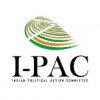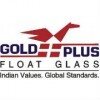Filter interviews by
Bureau Veritas Quality Inspector Interview Questions and Answers
Bureau Veritas Quality Inspector Interview Experiences
4 interviews found
I appeared for an interview before Mar 2024, where I was asked the following questions.
- Q1. Where is your home town?
- Ans.
My hometown is a quaint little place surrounded by mountains, known for its vibrant community and rich cultural heritage.
Nestled in the valley, it offers stunning views of the surrounding peaks.
The local farmers' market showcases fresh produce and handmade crafts every weekend.
Annual festivals celebrate our traditions, like the Harvest Festival with music and dance.
The town has a historic district with charming archite...
- Q2. Are you ready to relocate? etc.
I applied via Referral and was interviewed before Jul 2023. There were 2 interview rounds.
Education and work experience
(5 Questions)
- Q1. Ard you ready to move any where in india ?
- Ans.
Yes, I am willing to relocate anywhere in India for the right opportunity.
I am open to exploring new locations and cultures.
I understand the importance of being flexible in order to advance in my career.
I have previous experience of relocating for work purposes.
I am excited about the prospect of living and working in different parts of India.
- Q2. Expected salary ?
- Ans.
My expected salary range is $50,000 to $60,000 per year based on my experience and qualifications.
Research industry standards for Quality Inspector salaries
Consider cost of living in the area
Factor in years of experience and relevant certifications
Negotiate based on additional benefits offered
- Q3. What is BIS stand for?
- Ans.
BIS stands for Bureau of Indian Standards.
BIS is the national standards body of India.
It develops and publishes standards for various products and services.
Examples of BIS standards include IS 456 for concrete and IS 2062 for steel.
- Q4. What us ISO stand for?
- Ans.
ISO stands for International Organization for Standardization.
ISO is a non-governmental organization that develops and publishes international standards.
It ensures products and services are safe, reliable, and of good quality.
Examples of ISO standards include ISO 9001 for quality management and ISO 14001 for environmental management.
- Q5. Questions about coal sampling and testing?
I applied via LinkedIn and was interviewed before May 2023. There was 1 interview round.
(1 Question)
- Q1. Introducing yourself
Interview Preparation Tips
I appeared for an interview in Jul 2021.
Interview Questionnaire
5 Questions
- Q1. About notice period.
- Q2. About experience
- Ans.
I have over five years of experience as a Quality Inspector in manufacturing, focusing on product compliance and process improvement.
Conducted regular inspections of products to ensure they met quality standards, reducing defects by 15%.
Implemented a new quality control process that improved efficiency and reduced inspection time by 20%.
Collaborated with production teams to identify areas for improvement, leading to a ...
- Q3. About technical experience
- Q4. 5 technical exams
- Q5. And many more….
Interview Preparation Tips
Top trending discussions






Interview questions from similar companies

Interview Questionnaire
1 Question
- Q1. Agriculture products

I applied via Recruitment Consulltant and was interviewed in Dec 2022. There were 2 interview rounds.

(2 Questions)
- Q1. ALL QUESTIONS RELATED TO ASME AND PED, NDT, MATERIAL, WELDING
- Q2. They ask you about lot about raw material, WPS PQR, INSPECTION EQUIPMENT REGARDING QUESTIONS
Interview Preparation Tips
- ASME
- NDT Inspection
- Raw Material
- welding technology
- EQUIPMENT INSPECTION
- Heat Treatment

Interview Questionnaire
1 Question
- Q1. Quality related any questions asked me

Interview Questionnaire
1 Question
- Q1. In written interview most of the questions are about welding

I applied via Naukri.com and was interviewed in Feb 2023. There were 3 interview rounds.

(1 Question)
- Q1. Previous Experience and basic technical knowledge
(1 Question)
- Q1. Salary CTC breakup and finalising of offrole/on role

(1 Question)
- Q1. Introduction.technical
(1 Question)
- Q1. 7Qc tools 5S 8 defect
Bureau Veritas Interview FAQs
Tell us how to improve this page.
Bureau Veritas Interviews By Designations
- Bureau Veritas Surveyor Interview Questions
- Bureau Veritas Quality Inspector Interview Questions
- Bureau Veritas Field Inspector Interview Questions
- Bureau Veritas Senior Surveyor Interview Questions
- Bureau Veritas Trainee Interview Questions
- Bureau Veritas Inspection Engineer Interview Questions
- Bureau Veritas Chemist Interview Questions
- Bureau Veritas Analytical Chemist Interview Questions
- Show more
Interview Questions for Popular Designations
Overall Interview Experience Rating
based on 6 interview experiences
Difficulty level
Duration
Interview Questions from Similar Companies
Bureau Veritas Quality Inspector Reviews and Ratings
based on 32 reviews
Rating in categories
|
Surveyor
204
salaries
| ₹4.2 L/yr - ₹8.6 L/yr |
|
Chemist
191
salaries
| ₹1.8 L/yr - ₹5.2 L/yr |
|
Project Coordinator
175
salaries
| ₹2.5 L/yr - ₹8 L/yr |
|
Quality Inspector
175
salaries
| ₹2.8 L/yr - ₹7.6 L/yr |
|
Senior Surveyor
134
salaries
| ₹5.4 L/yr - ₹13 L/yr |

CMS Infosystems

Intertek

TÜV NORD

Medhaj Techno Concept
- Home >
- Interviews >
- Bureau Veritas Interview Questions














